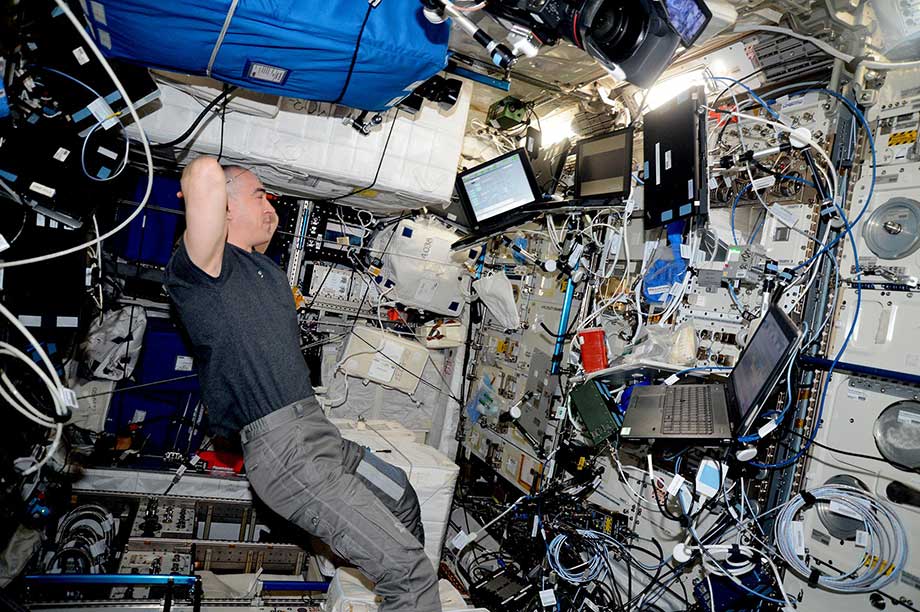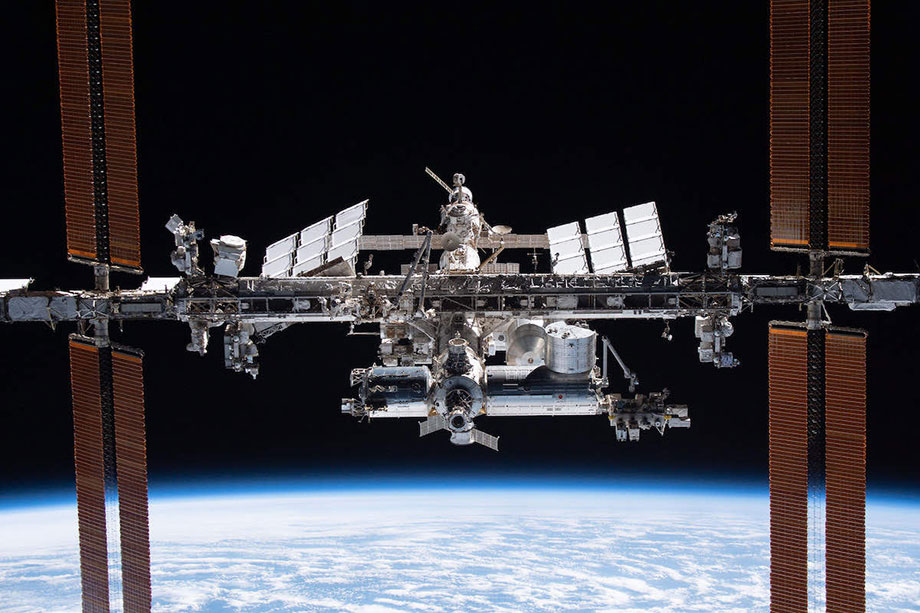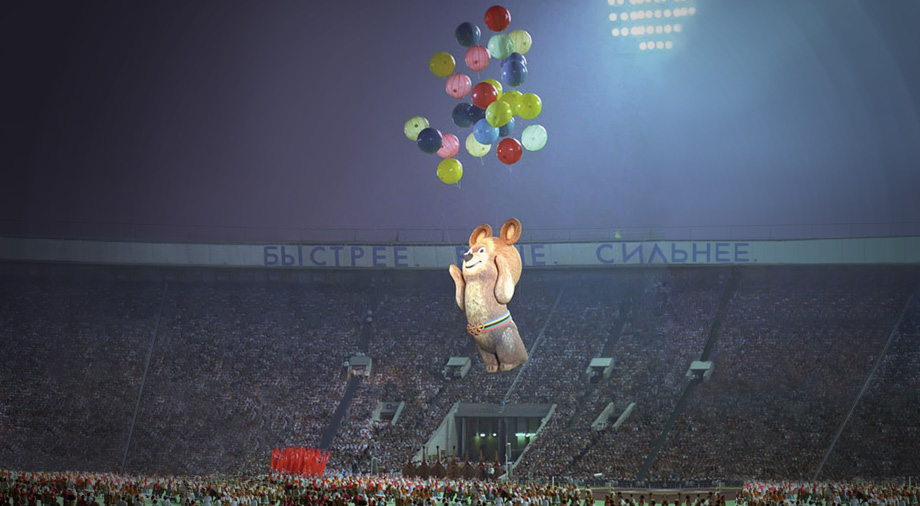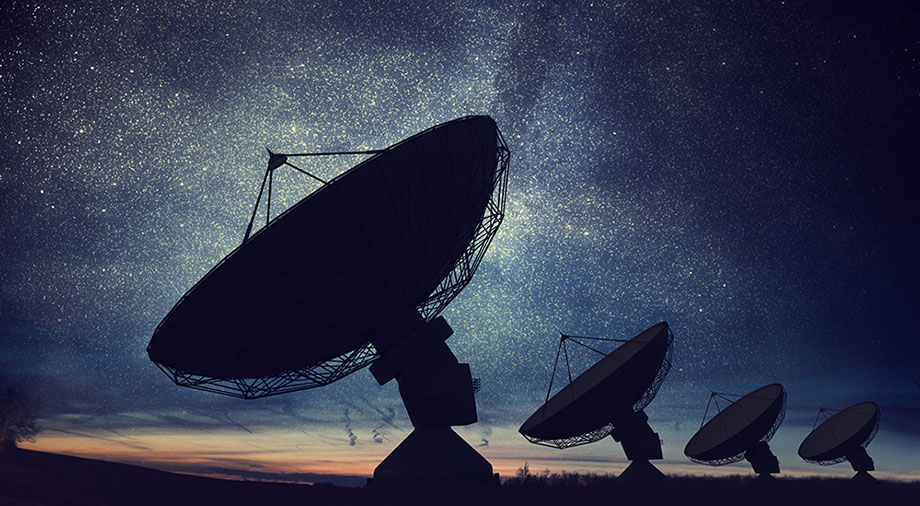source: www.rferl.org
On August 3, 1980, the closing ceremony of the 22nd Summer Olympic Games took place in Moscow. The ceremony closed with the Olympic Bear, the main symbol of the Moscow Olympics, being launched into the sky. Muscovites tied the Bear to balloons to send it into the stratosphere, which was the end of its trail.
We provided the example of the flying teddy at the beginning of this article for some good reasons. We’ll talk about the collapse of Russian space due to the sanctions imposed on Russia for initiating the war against Ukraine. The US is going to cut exports of space equipment and tools to Russia by half. Because of that, a number of promising space projects for Russia will fly “high into the sky” just like that teddy, leaving no single sign.
Ironically, almost 42 years after the Olympic bear was launched into the sky, it is time for Roscosmos to seriously consider the possible prospects of space launches using balloons and trampolines alone.
Exclusion of Russia from the space sector
ESA (European Space Agency) is urgently reviewing its attitude towards joint space programs and projects with Russia because of the ongoing war in Ukraine. Josef Aschbacher, the head of ESA, commented on the situation on his Twitter, “At the moment, ESA is making many difficult decisions taking into account the sanctions imposed by the governments of our member states.”
Today, the ESA has 22 member states, including Austria, Belgium, the Czech Republic, Denmark, Estonia, Finland, France, Germany, Greece, Hungary, Ireland, Italy, Luxembourg, the Netherlands, Norway, Poland, Portugal, Romania, Spain, Sweden, Switzerland, and the United States. The United Kingdom, Slovenia, Latvia, and Lithuania are the so-called “associate members” of the space agency. The ESA says that decision-making processes will be guided by the principles of European values that have always guided their approach to international cooperation.
Since Russia has completely negated these values by its intervention in Ukraine, the corresponding reaction is fully justified. At the initiative of ESA, the ExoMars space mission, which was to deliver the European rover Rosalind Franklin to the surface of the Red Planet using the Russian rocket “Proton” for launch in September 2022, was scrapped. The launch was scheduled for 2022 from the Baikonur Cosmodrome in Kazakhstan. The ESA board voted unanimously to end cooperation with Roscosmos, but, according to Aschbacher, “it was a painful decision for the board.”
Authorities are also planning to exclude Russia from the Horizon 2020 research program completely. Christian Ehler Authorities are also planning to exclude Russia from the Horizon 2020 research program completely. Christian Ehler from the European Parliament for Horizon Europe made a corresponding appeal to the European Commission. He called on to completely stop joint activities with Russian employees and freeze payments to those Russians who take part in the program for their research projects implementation. Just to remind you, 138 Russian researchers took part in the Horizon 2020 program and managed to attract funding of €14 million.
The British government has also announced its intention to prevent the Russian space and aviation industry from The British government has also announced its intention to prevent the Russian space and aviation industry from gaining access to the British insurance sector. In addition, British commercial companies will soon be banned from carrying out any financial transactions related to Russian companies and businesses providing services in Russia. The Brits hope that all EU members will follow their example.
Another doomed project is the Russian-German lab of plasma crystals RK-4 equipped on the ISS. This project was supervised by the German Aerospace Center (GAC), which, as the Russian-Ukrainian war started, completely stopped cooperation with its former Russian colleagues.

source: www.dlr.de
OneWeb has also announced that it isn’t using Russian Soyuz rockets to orbit the remaining 220 satellites that should complete the OneWeb constellation. The company is currently considering alternative launch vehicles from its OneWeb has also announced that it isn’t using Russian Soyuz rockets to orbit the remaining 220 satellites that should complete the OneWeb constellation. The company is currently considering alternative launch vehicles from its American, European, Indian, and Japanese colleagues. The company made the decision to stop using Russian rockets as a response to an ultimatum from Dmitry Rogozin, the head of Roscosmos, who said that Soyuz would only deliver OneWeb satellites into orbit if the Russian government received guarantees that its satellites would not be used for military purposes and the British government would lose its company’s share. OneWeb has decided not to seek a compromise with “a trampoline admirer,” and has unilaterally decided to end cooperation with Roscosmos.
The fate of the ISS
SSince 2000, the US has invested more than $100 billion of its budget in missions to the ISS. Although US-Russian relations have steadily deteriorated since the beginning of the new millennium, the ISS has nevertheless remained one of the few unbreakable areas of geopolitical cooperation between the two countries.
Despite the embargo on Russian supplies of microcontrollers, semiconductors, sensors, avionics, and other tools and equipment that can be used to build launch vehicles and missile weapons, cooperation on new missions to the ISS continues. Boris Johnson, the UK Prime Minister, also spoke in favor of continuing cooperation in the artistic and scientific fields just to express a reservation later. “Under the current circumstances, it all seems almost impossible to implement,” he admitted.

source: spaceflightnow.com
On March 1, NASA announced that the agency was considering possible options for navigating the station without On March 1, NASA announced that the agency was considering possible options for navigating the station without Russia’s involvement. The head of Roscosmos, Dmitry Rogozin, reacted immediately. Just as Russia’s top political leaders, Rogozin did so in the form of blackmail, threatening to unilaterally stop servicing the station’s maneuvering modules, for which the “Progress” cargo spacecraft is responsible today, by directing the 500-ton structure to collide with our planet.
At the same time, the head of Roscosmos clarified that the point of the possible station’s fall would definitely not be the territory of Russia. “Gentlemen, when planning sanctions, check those who generate them for Alzheimer’s disease so that your sanctions don’t fall on your head, not only figuratively. Just in case,” the head of Roscosmos wrote on his Twitter.
The ISS restarts, which Rogozin threatens to stop, are designed for orbital acceleration and prevention of the station from reaching the layers of the Earth’s atmosphere, where it could be destroyed. As an alternative to the Russian “Progress” spacecraft, NASA is considering “Cygnus,” but, so far, this is just a discussion.
One more reason for joint scientific activities on the ISS to continue is the monolithic physical nature of the station. The thing is that its modules belong to different countries and cannot operate separately. The ISS was explicitly designed to break down barriers instead of creating them.
While this problem remains unresolved, the chance that the planet’s largest space station will end before 2030, which is the official deadline for decommissioning the ISS, is still real. However, we firmly believe that the words of the Roscosmos head will be treated as bluff and intimidation, which have become “a new normal” for today’s Russia.
Phased out and frozen projects
Surprisingly, Russia has decided to play ahead of the curve in some space projects, announcing its withdrawal from a number of joint space programs before being excluded. Valery Egorov, a Russian cosmonautics promoter, has compiled the list of projects along with areas of the Russian space sector that have already ceased to exist:
- Global curtailment of commercial space launches using Russian carrier rockets, referring to the cessation of commercial space launches of Russian vehicles from the Guiana Space Center located in northeastern South America. While the launch of two Galileo satellites using Soyuz rockets is still scheduled for April 2022, Russia has already started to remove its scientists from the spaceport. In addition, ESA missions such as ESA’s Euclid space observatory and EarthCARE satellites are now in big question.
- Russia also unilaterally terminated its cooperation with NASA on the development of the Venera-D auto-interplanetary station. Roscosmos doesn’t rule out the possibility of creating the station but specifies that additional budget funding is required to implement this project, which sounds like a joke given the collapse of the Russian stock market.
- Taiwanese electronics are used in the design of all Russian satellites. Without the appropriate supplies, Russia will have to develop its analogs, and they may cost about a trillion rubles of budget funding.
However, the law of conservation of energy also applies to this case. The full isolation of the Russian space sector However, the law of conservation of energy also applies to this case. The full isolation of the Russian space sector provides unique opportunities for other players in this market. Chaitanya Giri, the founder of DAWON Advisory & Intelligence, suggests that India could replace Russia in the space launch sector. However, for that to happen, the country must activate all of its capabilities in the space sector.
Only time can tell if India has the necessary resources to implement these plans. Still, the trend is encouraging: while aggressive bears fly away on balloons, wise elephants are stepping in. We are sure that the global space will only benefit from such a decision.






